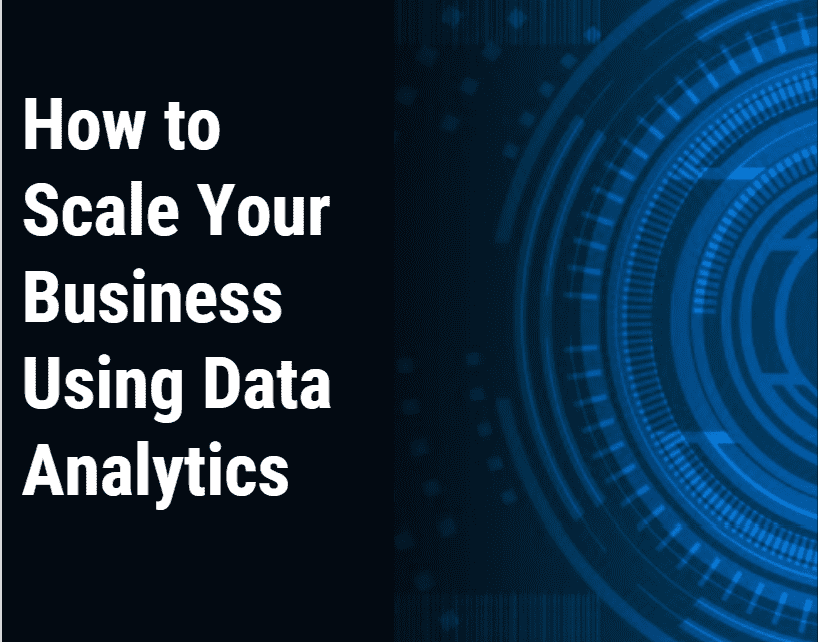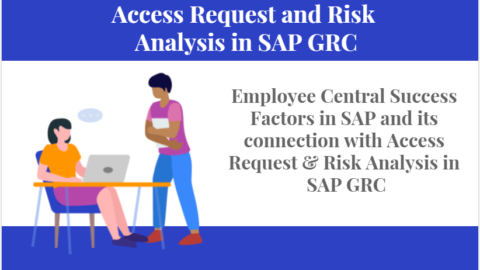How to Scale Your Business Using Data Analytics
Scaling can be scary if you don’t have the data to back it up. Every entrepreneur who is backed by investors can scale their business overnight, but doing it right so that you don’t lose money while doing so, is tough. Data analytics is visualizing raw data that’s collected from your business operations, customers, and vendors to analyze and predict future trends to scale your business accordingly. One way to efficiently utilize data analytics is by the help of data matching. Data matching software on this page, for example, can help you identify and consolidate disparate data sets, enabling a more comprehensive analysis of your business’s performance. With a holistic view of your operations, customer preferences, and vendor relationships, you can make informed decisions about the best strategies for growth and identify potential risks before they become major obstacles.
Table of Contents
How Does Data Analytics Add Value to a Business?
Productivity Improvement
Companies often suffer from a lack of efficient internal process management which keeps them from scaling. Not having enough employees and lacking in logistics can be the issues that an expanding company faces when trying to achieve its goals.
Each stage of your business operation is a data point and a potential bottleneck. If you don’t have enough data on your warehouses, inventory, shipping, and especially complaints, analyzing them for optimizing the operations won’t be possible. By having data analytics on every point of your operation, you can gain better knowledge about your inefficiencies. And get a better view of what needs to be done.
Bottlenecks not only restrict your operations but also hinder customer satisfaction. They can also impact your potential to scale by restricting the production or customer onboarding. With ample data on every point, you can identify the points. And find where performance isn’t optimum and find out why the issues exist. You can become more active in solving issues with data.
Customer Personalization
Data is driving today’s competitive world. A company that still isn’t using data to drive its business and marketing strategies, might already have been left behind by its competitors. To understand what the customer thinks, what they like, and what they want, data is the most important element.
As poor data costs the US economy $3.1trillion yearly, each company that has the resources and ability to peek into the customer’s life, set up multiple data points for each customer to give them personalized recommendations. The data points can vary from store inventory, previous purchases, to even their choice of commute. Depending on the product the company sells, these data points may include more unconventional elements that are required to analyze each customer.
These data analytics are used to personalize each notification, recommendation, and email the client receives. Some organizations also customize their websites to fit each customer better. The introduction of AI and machine learning has also helped companies achieve scaling goals with help of data analytics
In the future, where customers will have a massive number of solutions for every issue they incur, having a personal touch with them will become a necessity.
Saving on Resources to Gain More Revenue By Using Data Analytics
Despite the promise of growing revenue, scaling your business can be expensive. In most cases, the expense directly correlates with the number of additional employees and resources you will need. Although scaling is about committing more assets to generate more revenue, the curve shouldn’t be linear. Every business tries to generate more revenue without investing an equal amount.
Business analysts help tackle the problem that most entrepreneurs face. They think that they need to keep spending more to generate more revenue, which saturates or even declines their profit. Deep diving into your data points to cut out extravagant expenses will considerably improve your cash flow and leave you with a better return on investment.
Your data analytics also helps you determine which demographic has the highest potential to spend on your product. Many of the companies–after utilizing their data–have enjoyed manifold growth by targeting the correct demographics without spending equally.
Re-Developing Your Product
You can’t produce the perfect product in the first go. Even if you do, the changing market scenario would soon deem your product obsolete in no time. Scaling your business with a product that’s not relevant anymore, will be challenging.
Data analytics help incorporate market feedback in your product by exposing the elements that the customers like and dislike. With the information, you can either tweak the product, change the marketing strategy, or even re-develop the products as per your convenience.
Having data analytics by your side, you’d also be able to analyze the predictive cost of re-developing and re-marketing your product. Which would help you make informed decisions about the operational aspects of your business.
Scaling With Data Transparency
More than using data to analyze the business, this strategy is considered by companies to market their brand using statistics. Most public companies have to publish their financial and business data to their shareholders for the sake of transparency.
As their growing profit margin helps pump the stocks, your flattering stats can also help market your brand. Positive stats will not only build trust and loyalty in your customers but will also help you scale your company by obtaining new leads parallelly.
Cybersecurity and Scaling
Server breaches are destructive for any scaling company. As nowadays every company stores data of their customers.And as the customers know about it, a data breach can be disastrous or even crippling to the company.
Whereas, a company with no history of data breach and robust cybersecurity measures gains the trust and loyalty of their customers to scale their operations even more. It has even come to this. Investors and customers want to do business with companies that have a healthy security system in place.
Data analytics are helpful for proactively determining the best approach in the event of a breach.
Talent Acquisition Strategies
Without employees whose interests and talent go in parallel with your company’s goals, scaling might become challenging. With AI, data analytics, and machine learning, the companies are acquiring and retaining talents that they deem valuable for their future endeavors.
Using data analytics to recruit employees might still be a stigma. Because of the absence of emotion and human touch these systems lack, major companies are using data in their recruitment process to locate the best talents in the market for particular roles. Although it still isn’t worth taking the risk to use data analytics for the whole recruitment process. You can try giving it a shot for finding the candidates that your company needs and then take the help of human resources to identify the best one.
The Bottom Line on Using Data Analytics
Data analytics can help you gain and retain customers and aid you to scale your business. From productivity improvement to talent acquisition, from customer personalization to resource-saving measures… Data analytics are helping businesses take discomfiting scaling decisions comfortably. Scaling isn’t spending more to generate more revenue, it’s about generating more without spending an equal amount of money. Take the assistance from data analytics to achieve that and grow beyond expectation.
Dan has hands-on experience in writing on cybersecurity and digital marketing since 2007. He has been building teams and coaching others to foster innovation and solve real-time problems. Dan also enjoys photography and traveling.











“Nice info!”
I went through your blog and I really found your blog very useful, and informative.
Its has all the required information about how to scale the business using business analytics.